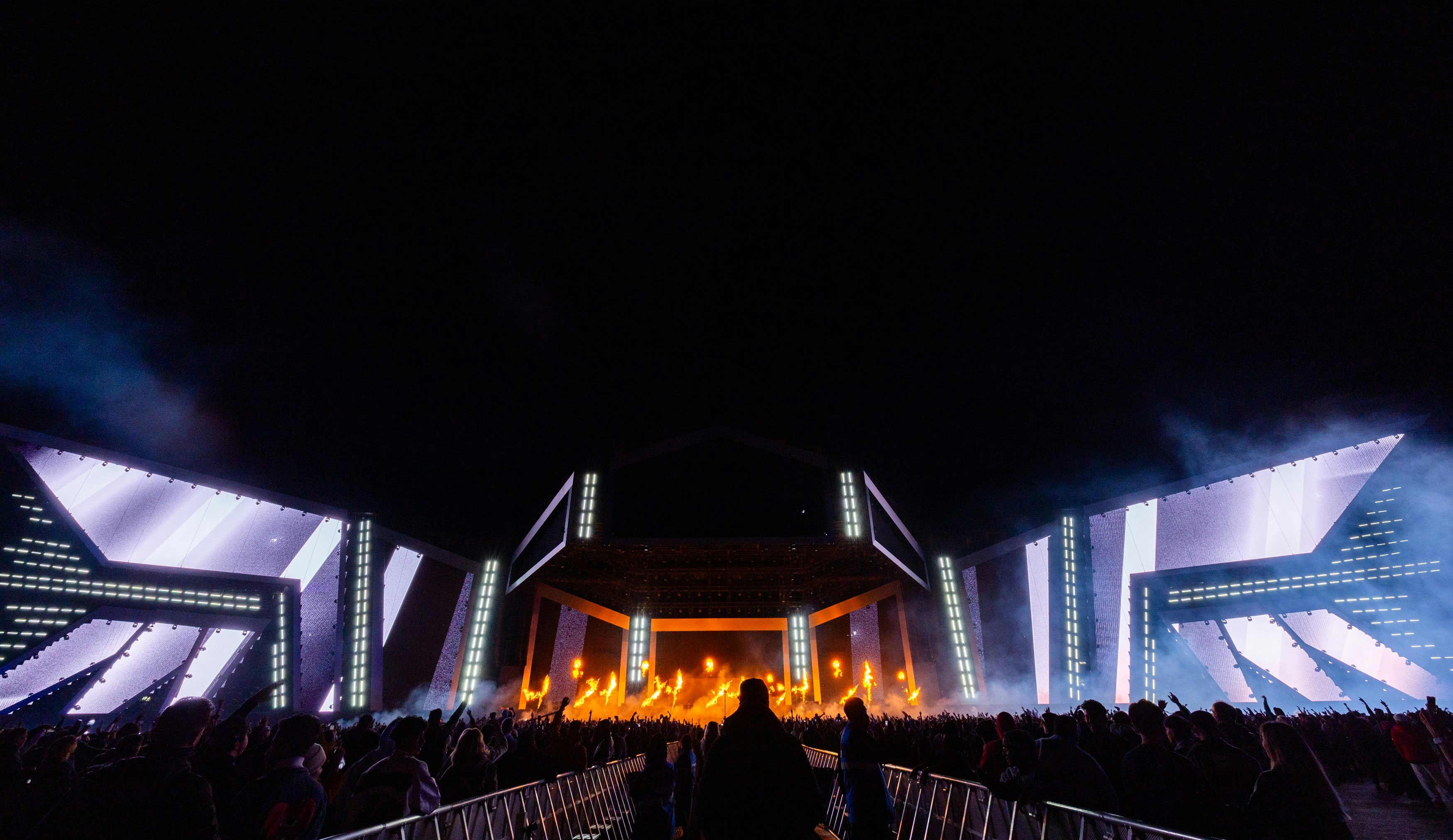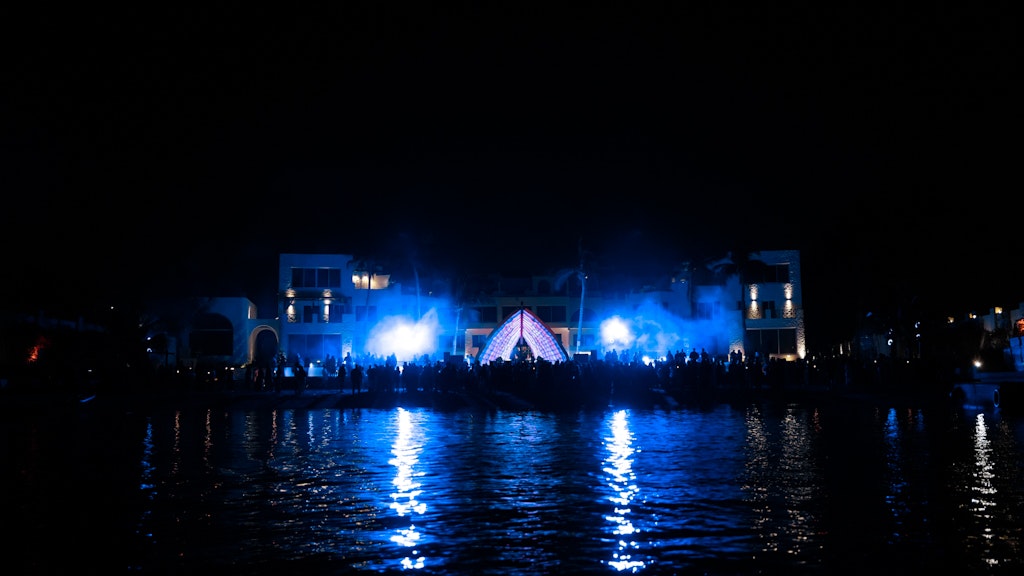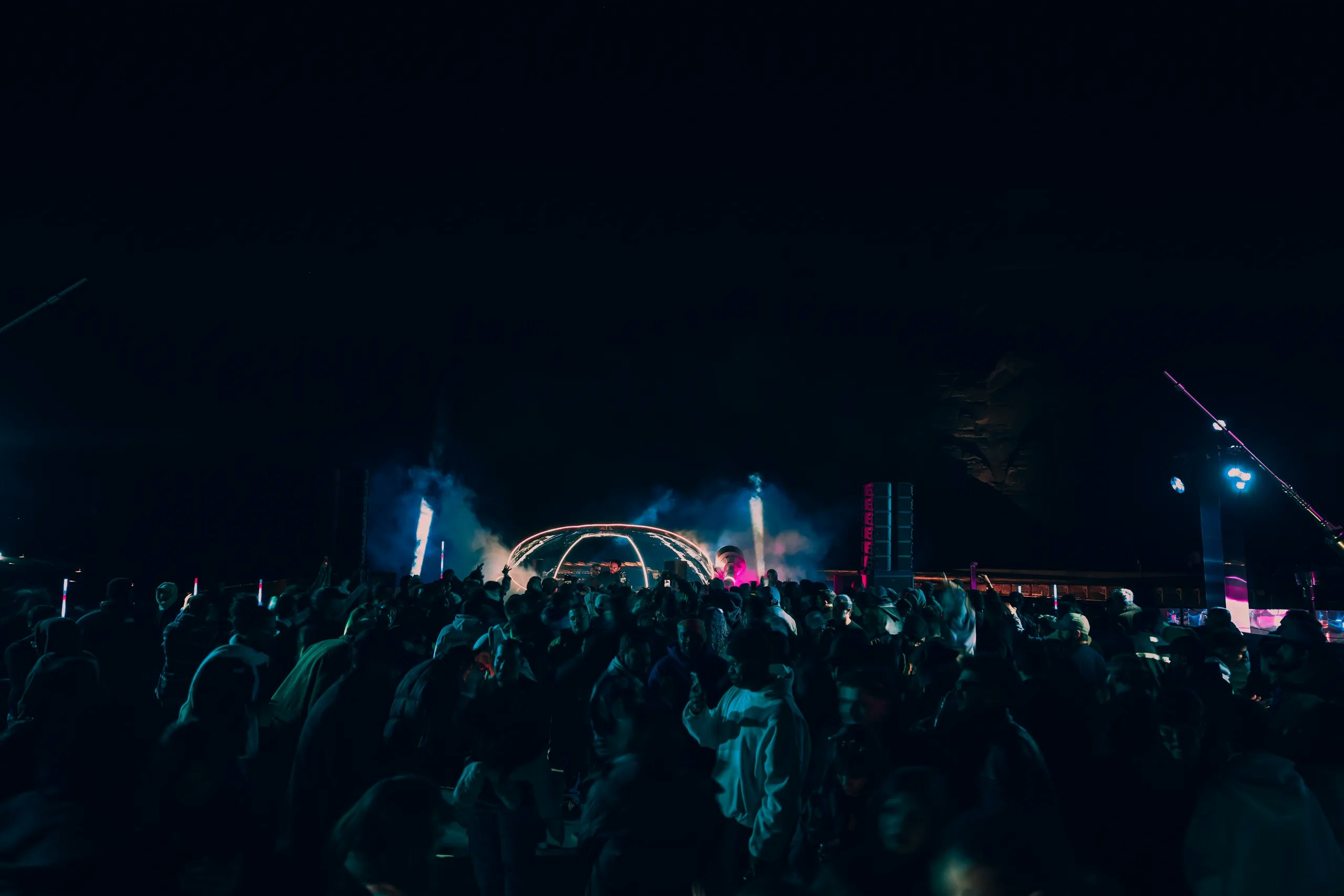

Exploring the Diversity of 70s Bands
By MDLBEAST
February 19 2024
Exploring the Diversity of 70s Bands
By MDLBEAST
February 19 2024
Step into the dynamic realm of 1970s music as we explore the iconic 70s bands that defined this revolutionary era. A diverse collection of genres emerged, each contributing to the vibrant culture of the time.
From the melodic resonance of classic rock to the pulsating rhythms of disco and the audacious energy of punk, these bands sculpted the sonic landscape of the 70s. Join us on a journey to rediscover the sounds of these legendary musical ensembles, created by some of the most impactful bands of the 70s.
Embark on a trip through musical history with MDLBEAST, your one-stop destination for everything related to music.
Classic Bands of the 70s
The Eagles
One of the most iconic bands of the era, the Eagles came together in 1971 in Los Angeles. They soared to prominence as one of the most influential classic 70s bands. Comprising Glenn Frey, Don Henley, Bernie Leadon, and Randy Meisner, their harmonious blend of rock, country, and folk elements defined the "California sound."
The Eagles had a profound influence on culture and society, with hits like "Hotel California" and "Take It Easy" shaping the landscape of 70s music. Their intricate harmonies and seamless genre fusion established the Eagles as influential trailblazers in classic rock.
The Allman Brothers Band
Founded in 1969 by brothers Duane and Gregg Allman, the Allman Brothers Band emerged as pioneers of Southern rock. With a lineup that included Dickey Betts, Berry Oakley, and Butch Trucks, their bluesy and improvisational style garnered widespread acclaim. The Allman Brothers Band became synonymous with extended live performances, exemplified by the legendary At Fillmore East album.
Their impact on culture and society is profound, influencing the Southern rock genre and contributing to the evolution of American rock music during the 1970s. Tragically, Duane Allman's untimely death in 1971 marked a turning point, but the band's legacy cemented their status as Southern classic rock legends.
Santana
Formed in San Francisco in 1966, Santana, led by guitarist Carlos Santana, emerged as a groundbreaking force in the fusion of rock and Latin music. With a dynamic lineup that included Gregg Rolie on keyboards and vocals, Santana's unique blend of blues, jazz, and Afro-Cuban rhythms defined their signature sound.
The 70s band's debut album, highlighted by the iconic track "Soul Sacrifice," catapulted them to international acclaim. Coupled with the band’s sensational performance at Woodstock in 1969, they influenced the genre and helped bring Latin rock to the center stage. Their genre-blending approach and catchy melodies continue to resonate across generations, with hits like “Smooth” and “Maria Maria” still picking up popularity today.
Rock Bands of the 70s
Aerosmith
Aerosmith rose to prominence as one of the pioneering 70s bands. Comprising Steven Tyler, Joe Perry, Brad Whitford, Tom Hamilton, and Joey Kramer, the band crafted a dynamic sound blending hard rock, blues, and glam influences. Along with KISS, Aerosmith pioneered the glam metal genre, with their flashy looks and incredible stage presence.
Aerosmith's impact on culture and society was monumental, with their raucous performances and timeless hits like "Dream On" and "Sweet Emotion" becoming anthems of the era.
This 70s band's resilience through highs and lows, coupled with their electrifying stage presence, solidified their status as rock legends. They influenced the subsequent generations of musicians, leaving an imprint on the American rock genre.
ZZ Top
With their conception in 1969 in Houston, ZZ Top, consisting of Billy Gibbons, Dusty Hill, and Frank Beard, emerged as icons of blues rock and boogie. Renowned for their signature beards and sunglasses, ZZ Top crafted a distinctive sound characterized by gritty guitars and catchy rhythms.
With hits like "La Grange" and "Sharp Dressed Man," they became synonymous with Southern rock and blues-inspired hard rock. ZZ Top's cultural influence extends beyond music, as their image and style symbolized the era.
KISS
Formed in New York City in 1973, KISS, featuring Gene Simmons, Paul Stanley, Ace Frehley, and Peter Criss, emerged as flamboyant glam and hard rock pioneers. With elaborate costumes, face paint, and explosive live performances, KISS became more than a 70s band; they became a theatrical experience.
The group's impact on culture and society was monumental, influencing music and setting a new standard for showmanship in the industry. Hits like "Rock and Roll All Nite" and "Detroit Rock City" solidified their place in rock history, making KISS iconic for their music, larger-than-life persona, and the allure of their electrifying stage presence.
Most Popular Bands in the 1970s
Rush
Conceived in Toronto in 1968, Rush, consisting of Geddy Lee, Alex Lifeson, and Neil Peart, transcended traditional rock boundaries to become progressive rock maestros. With intricate musicality and profound lyrics, Rush's albums like 2112 and Moving Pictures shaped a unique sonic landscape.
The band's cultural influence lies in their ability to blend complex arrangements with thought-provoking themes, attracting a dedicated fanbase. Their anthems, such as "Tom Sawyer" and "Spirit of Radio," showcase a synthesis of virtuosity and accessibility.
ABBA
Created in Stockholm in 1972, ABBA, featuring Agnetha Fältskog, Björn Ulvaeus, Benny Andersson, and Anni-Frid Lyngstad, achieved global superstardom with their pop tunes. The band's harmonious vocals and catchy melodies, exemplified by hits like "Dancing Queen" and "Mamma Mia," defined the disco era.
ABBA's cultural influence extends beyond music, encompassing fashion, movies, and even a successful Broadway musical. With their timeless appeal and chart-topping success, ABBA remains an influential force in pop music, leaving a lasting impact on the global cultural landscape.
Deep Purple
Deep Purple, comprising iconic members like Ian Gillan, Ritchie Blackmore, and Jon Lord, emerged as pioneers of hard rock and heavy metal. Their influential sound, characterized by Blackmore's virtuosic guitar riffs and Lord's distinctive Hammond organ, defined the 70s rock scene.
Deep Purple's cultural impact is evident in timeless classics like "Smoke on the Water" and "Highway Star," which shaped the rock genre and influenced the evolution of heavy metal. With a powerful stage presence and a catalog of dynamic compositions, Deep Purple remains an integral part of rock history, leaving behind a legacy for generations of music enthusiasts.
-
Discover the incredible lineup of rock bands and other stellar artists across all genres at Soundstorm.
Share this


